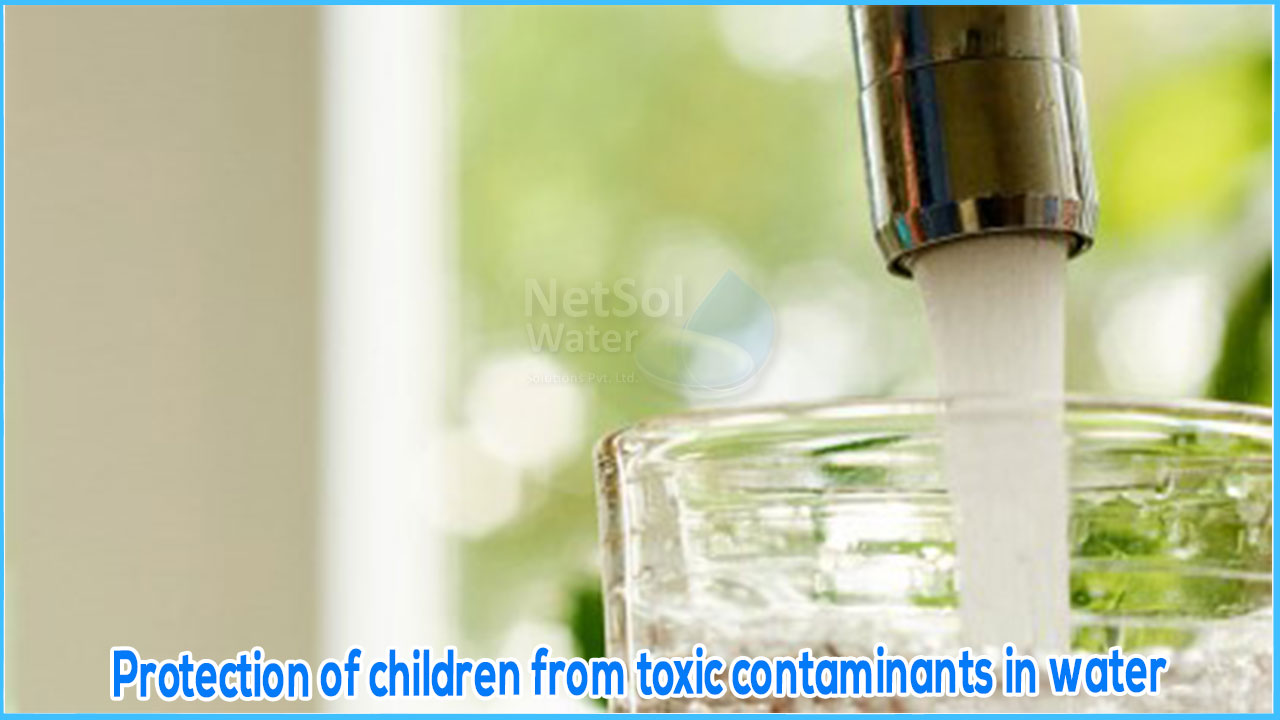How does Toxic Water effect children’s health?
Consider the following shocking statistic from water.org: “A child dies from a waterborne illness every two minutes. As a result of contaminated water and sanitation concerns, around 160 million children globally suffer from health problems. Whether they are drinking polluted water or are dehydrated, the major cause is a shortage of safe drinking water”.
More than 250 toxins have been identified in drinking water in various countries, according to statistics from the Environmental Working Group's Tap Water Database. Here's what the numbers say:
-Hormone disruption has been linked to at least 45 pollutants.
-There are 63 contaminants that can harm a foetus or a young child's development.
-There are 78 pollutants that have been related to disorders with the brain and nervous system.
-93 chemicals have been related to cancer, and 38 pollutants have been connected to difficulties with human reproduction.
Researchers aren't sure if or how these contaminants affect a child's development, but the consequences can range from no physical consequences to severe disease or even death. Children who consume polluted water may have nausea, vomiting, cramps, headaches, and diarrhoea, among other symptoms. Cholera, roundworm, typhoid, hepatitis A, poliomyelitis, cryptosporidium, giardia, whipworm, and other waterborne diseases are all possible.Several common drinking water contaminants may also cause adverse effects in children, such as:
- 1. Reduced IQ and attention span, mental retardation, learning difficulties, hypertension, immunotoxicity, renal impairment, anaemia, increased antisocial behaviour, and other behavioural issues are all possible consequences.
- 2. Skin lesions, a higher chance of cancer, vascular and neurological disease, cardiovascular difficulties, poor growth and development, renal damage, central nervous system disorders, bone abnormalities, and bone fractures are just a few of the conditions that can occur.
- 3. Thyroid difficulties, mottled teeth, bone disease, dental caries, dental fluorosis, skeletal fluorosis, thyroid problems, mottled teeth, methemoglobinemia in young infants, childhood cirrhosis
- 4. Seizures, muscle spasms, profuse saliva, and stomach pain are all symptoms of epilepsy.
Water pollution has a particularly negative impact on babies who are bottle-fed. This is because a newborn who is exclusively given powdered formula mixed with tap water consumes the most water of any age group due to its small size. A formula-fed baby's diet might consist of up to 85% tap water, and this period can last up to six months before parents begin supplementing formula with food.
What can we do to safeguard children’s health?
Installing a dependable and efficient in-home water filtration system is the greatest approach to safeguard your children from hazardous toxins in drinking water. There are various types of water filters, but reverse osmosis systems and carbon filters are the most effective.
Reverse osmosis (RO) systems
Reverse osmosis (RO) systems, such as the Netsol filters, are the most effective at removing pollutants from water. They are specially designed to remove all types of pollutants from drinking water that other filtration systems are unable to do. Toxic contaminants including as lead, mercury, arsenic, atrazine, fluoride, manganese, nitrate, chlorine, chloramine, chlorine byproducts, are removed using a four-stage filtration procedure.
Carbon filtration
Carbon filtration is another effective treatment option. The Netsol Whole House Water Filter System, like other whole-house water filtration systems, is meant to filter all of the water that comes in through your water main before it reaches all of your houses numerous sections.
Installing a proper water treatment solution can provide a better life to children as it is our responsibility to provide best to our children that is what Netsol RO system comes with. Choosing a best water filtration solution as per our demand is the first step to safeguard our child from harmful contaminates found in water.




